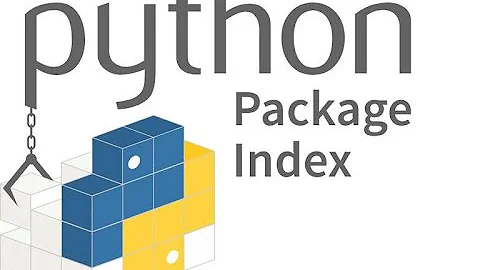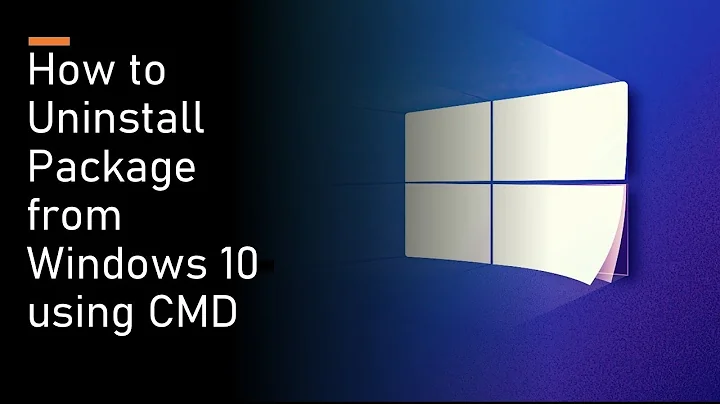How remove all programs comes from a package?
Solution 1
As apt-get autoremove (suggested by Aaron) will remove all "helper-packages" nothing seems to depend on any longer, sometimes you want to keep some of them for one reason or another. So if that concerns you, another possibility would be:
$(apt-cache depends postgresql|awk '{print "sudo apt-get remove "$NF}')
Using Bash as your shell, this would basically do the following:
apt-cache depends postgresqlwould list all packages the postgresql depends on, including postgresql itself. But each line would look likedepends on: <package>-- so we pipe the output to...awk '{print "sudo apt-get remove "$NF}'which would take the last word on each line (which is the package name), and prints it out after preceding it with our intended command:sudo apt-get remove(you could of course also useapt-get purgeinstead).- finally, using the
$()construct, we advise Bash to interpret the output as command to be executed.
You could alternatively replace the 3rd step and instead redirect the output into a file:
apt-cache depends postgresql|awk '{print "sudo apt-get remove "$NF}' >pg_remove.sh
And then inspect the file, optionally do some adjustments (such as commenting out/removing lines where you want to keep a package), and finally execute the script using
bash pg_remove.sh
Now you have a lot of possibilities to chose from :)
EDIT: Checking with more complex metapackages as e.g. lubuntu-desktop, above statements needs to be refined:
apt-cache depends <packageName>|grep "Depends on"|awk '{print "sudo apt-get remove "$NF}'
The grep is needed to restrict the result to dependencies (and skip the recommends etc.).
IMPORTANT: You should use this only for metapackages!!! otherwise, you may end up with an empty disk (e.g. postgresql-9.1 depends on libc6, and removing libc6 will certainly backfire as it is needed by a lot of packages).
So be careful, and better redirect to a file first (as explained) and investigate before execution.
Solution 2
HIt Alt+Ctrl+T and run:
sudo apt-get autoremove
This command removes packages that are no longer needed, which is due to removing a package (such as postgresql) that depends on them.
You can always purge the configuration files with:
sudo apt-get autoremove --purge
To clean even further, use the following:
sudo apt-get install deborphan sudo apt-get autoremove --purge
deborphan
Related videos on Youtube
Comments
-
Marc almost 2 years
When you install a program like postgresql, it installs several programs for its last version.
Once installed how remove all those packages? because using
apt-get remove postgresqlremoves only that head package
-
Marc almost 12 years
apt-cache depends postgresqlonly shows that it depends on postgresql-9.1 -
 David Tod almost 12 yearsThat's correct -- but I wouldn't iterate with the remove; postgresql-9.1 itself depends e.g. on libc6, and if you remove that you probably get an empty disk (almost). This said, I must add you should only use this on meta-packages, for the given reasons. In your example, the meta-package seems to hold only this one package -- looking on others I see it gets much more complex, and my above answer would need to be refined (check e.g. with the
David Tod almost 12 yearsThat's correct -- but I wouldn't iterate with the remove; postgresql-9.1 itself depends e.g. on libc6, and if you remove that you probably get an empty disk (almost). This said, I must add you should only use this on meta-packages, for the given reasons. In your example, the meta-package seems to hold only this one package -- looking on others I see it gets much more complex, and my above answer would need to be refined (check e.g. with thelxdemetapackage, orlubuntu-desktop... -
Marc almost 12 yearsThe bad side is that it can not purge packages (remove configuration files) of that metapackage.
-
 Hee Jin about 6 yearsAmazing! This is so cool! This may be a silly question, but what do you do about purging the configuration files of the dependencies? If you used the command where you generate a shell script first that can be edited, do you see any problem with changing
Hee Jin about 6 yearsAmazing! This is so cool! This may be a silly question, but what do you do about purging the configuration files of the dependencies? If you used the command where you generate a shell script first that can be edited, do you see any problem with changingapt-get removetoapt-get purgeor even` apt-get purge --auto-remove`? -
 David Tod about 6 years@Emily if you want that, just add the
David Tod about 6 years@Emily if you want that, just add the--purgeparameter to the command, i.e.… awk '{print "sudo apt-get remove --purge "$NF}'.
![How to completely Uninstall any software from your Computer | Remove Software Completely [Subtitle]](https://i.ytimg.com/vi/c4j47cyPJ_Y/hq720.jpg?sqp=-oaymwEcCNAFEJQDSFXyq4qpAw4IARUAAIhCGAFwAcABBg==&rs=AOn4CLDaXkdzmFQqJWYoktIu6tHDJ37p7A)



